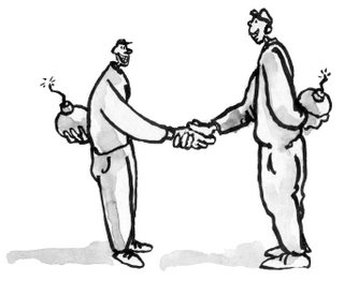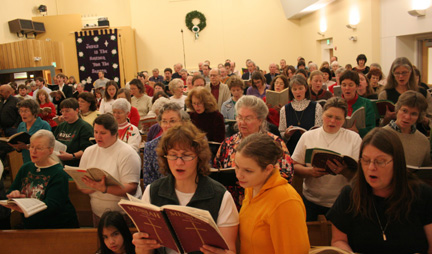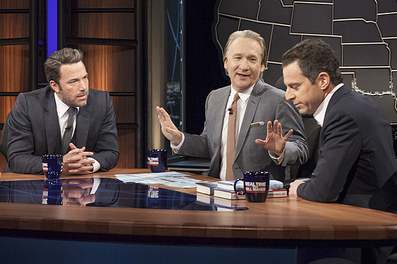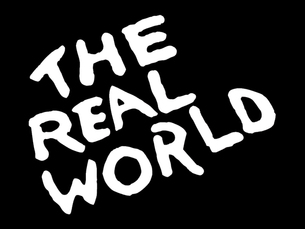
Neighbors have tried to intervene without success, and efforts to get to the bottom of the spat have stumbled. Long ago there was a childhood argument about who should receive a blue dress. The details are shrouded in years of hurt. There is no access to what really happened, but would it matter? Unpacking the past rarely produces results.
Many people believe that reconciliation means reviving and reliving the past. For the sisters this would mean reclaiming life before the blue dress, which is impossible. Yet we often base reconciliation on such a step. We dissect conflict and rehash the past in search of primordial bliss.
Churches are notorious for this assumption. Reconciliation is equated with reviving an imagined past, and the early church holds powerful sway. If we all follow Jesus and his disciples won’t we all get along? Less ancient pasts also creep in. The pictures on church walls feed our fantasies. Smiling leaders, new members, and the church softball team. Surely there once was conviction and consensus. Surely we must recover it.
Reconciliation doesn’t mean reanimating the past. Reconciliation means surrendering the past. We must relinquish the myth of unity and uniformity that never was there. We must learn from the past without enslaving ourselves to it.
Even if the blue dress was significant, it is gone now. What matters is going forward together. Only letting go allows a different future to emerge. Coming together in a better way becomes possible. A future together matters more than a blue dress.
William L. Sachs



 RSS Feed
RSS Feed
